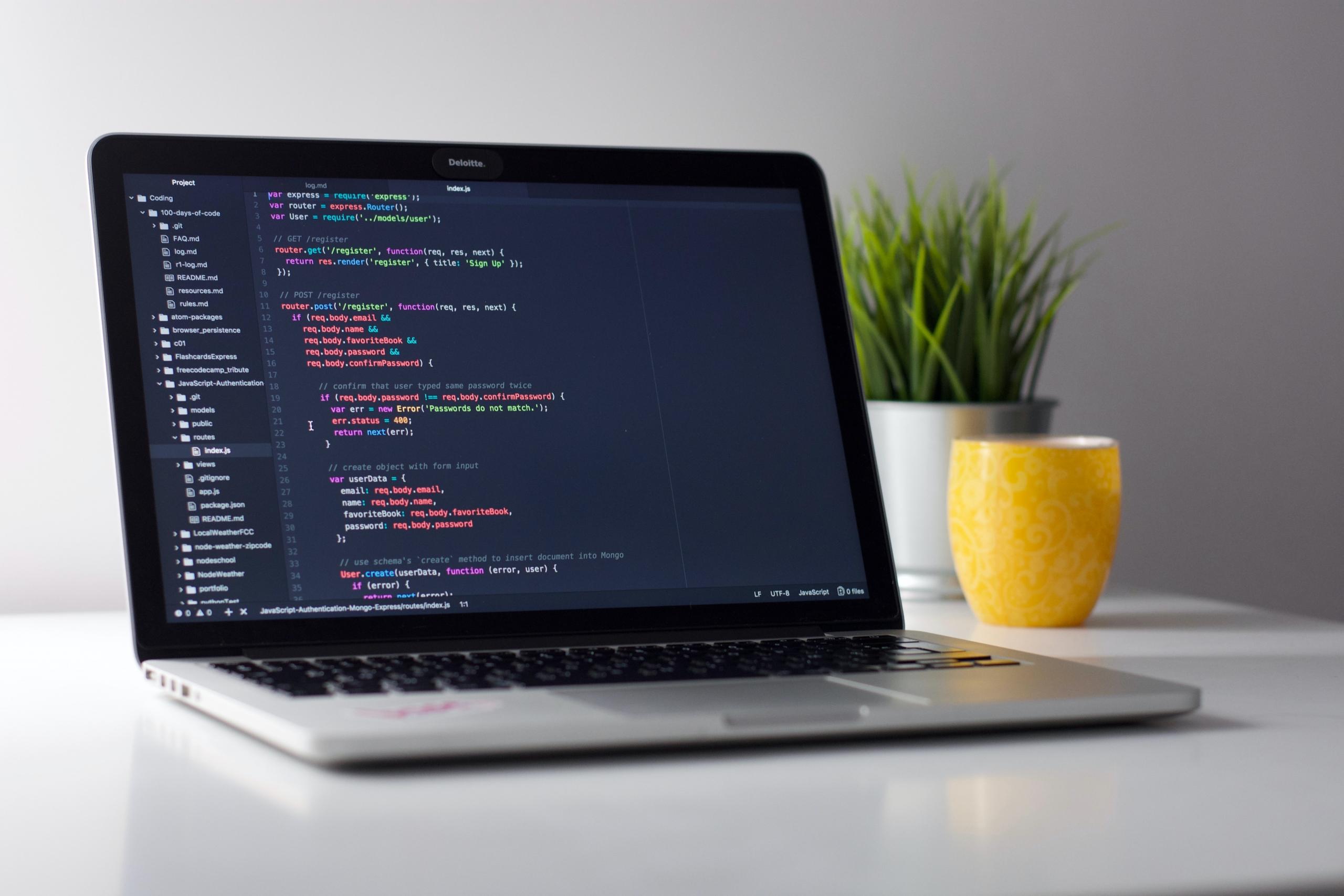“Computers have memory but they don’t have memories.” - Anonymous
Of all the languages in the world, programming languages are among the most commonly used despite relatively few people knowing them. Not know the first thing about JavaScript, PHP, object-oriented programming, or C? You’ve come to the right place. Most households in the UK possess at least one computer and they’re only going to become more common so learning to code or programme could be useful for quite a few of us.
To get started with coding, you don’t even need to leave the house. There are plenty of great tutorials and excellent tutors working online who can help you. We’ve had a look! Here are different ways to learn how to code and become a programmer.

How to Learn to Code At Home?
Learning to code at home has become a popular and feasible option for individuals of all ages and backgrounds, thanks to the abundance of online resources and structured programs. Coding is not only a valuable skill for entering the technology sector but also a tool for enhancing problem-solving and logical thinking.
Understand the Basics of Coding
Before diving into programming languages, it is essential to grasp the fundamental concepts of coding. At its core, coding involves writing instructions that a computer can understand to perform specific tasks. Key concepts include:
- Variables: Storage for data values.
- Data Types: Categories of data, such as integers, strings, or booleans.
- Control Structures: Instructions like loops and conditionals that determine the flow of a program.
- Functions: Reusable blocks of code designed to perform specific tasks.
Numerous free resources, such as YouTube tutorials or beginner-friendly platforms like Codecademy, can help familiarize learners with these concepts.
Choose the Right Programming Language
The choice of programming language depends on your goals:
- Web Development: Learn HTML, CSS, and JavaScript.
- Data Science or Machine Learning: Focus on Python or R.
- Mobile App Development: Explore Swift (for iOS) or Kotlin (for Android).
- Game Development: Investigate C# or C++.
Python is an excellent starting point for beginners due to its simplicity and wide range of applications.
Utilize Structured Online Courses
Enrolling in an online course provides a structured curriculum and a clear learning path. Websites like Coursera, edX, and Khan Academy offer courses designed by universities and industry professionals. For example, Harvard’s CS50: Introduction to Computer Science is a renowned course available online for free.
These courses often include:
- Video lectures.
- Coding assignments.
- Quizzes to test understanding.
- Discussion forums for peer interaction.
Practice Through Projects
Practical application is crucial in coding. Beginners should work on simple projects, such as:
- Building a personal website.
- Creating a calculator.
- Developing a basic game like Tic-Tac-Toe.
As skills improve, learners can progress to more complex projects, such as developing a portfolio site, building a data analysis dashboard, or automating tasks using Python scripts. Websites like GitHub and Replit allow users to share and collaborate on coding projects.
Leverage Free and Paid Resources
Numerous platforms offer free and paid resources to support learning:
- Free Resources: FreeCodeCamp, W3Schools, and GeeksforGeeks provide tutorials and exercises.
- Paid Platforms: Udemy and Pluralsight offer affordable courses with certification options.
Books like “Automate the Boring Stuff with Python” and “Eloquent JavaScript” are also excellent for deepening understanding.
Engage in Coding Challenges
Websites like HackerRank, LeetCode, and Codewars provide coding challenges and problems that encourage critical thinking and problem-solving. These challenges are particularly beneficial for learners preparing for coding interviews.
Join Online Communities
Learning to code can be isolating, but joining online communities fosters motivation and collaboration. Platforms like Stack Overflow, Reddit’s r/learnprogramming, and Discord servers for programmers offer support and advice.
Set Realistic Goals and Maintain Consistency
Establishing achievable goals and dedicating consistent time daily to practice is essential. Start with small milestones, such as completing a tutorial or solving a coding problem, and gradually increase the complexity of tasks.
Track Progress and Seek Feedback
Regularly evaluate progress by testing your skills through quizzes or peer reviews. Sharing your projects with mentors or peers can provide valuable feedback for improvement.
Coding is essentially learning a programming language to tell a computer what to do and it's a skill that you can learn from home. There are plenty of sites on how to learn to code, too:
- OpenClassrooms: This site is s one of the first you should check out and it’s home to a very useful forum where learners can help each other on their journey to becoming programmers.
- Codecademy: This site includes exercises and lessons on learning how to code. A great place to get started.
- Code.org: This site teaches you how to code and has lessons for all levels and backgrounds.
- Coursera: This site is free to join and there are courses and lessons on different types of programming.
- Superprof: Naturally, you can use our site to find Coding teachers having teaching programs.
If there’s one thing we have to say about programming, it’s that practice makes perfect! Don’t worry to make mistakes, either, it’s how we learn. Check out some of the best resources for learning to code.
How To Learn Coding For Free?
When you’re teaching yourself, you also need to know when to ask for help! There are teachers, courses, and resources that when used correctly, can help you learn quickly and effectively. Find more learn programming online here on Superprof.
Coding is a valuable skill that empowers individuals to create websites, develop apps, and solve complex problems. Free resources remove barriers to entry, allowing anyone with internet access to gain this knowledge. Learning for free also provides flexibility, enabling learners to explore various programming languages and frameworks without financial commitments.
Still busy, save these online coding classes for later.

Free Resources for Learning Coding
FreeCodeCamp
FreeCodeCamp is a renowned platform offering a wide range of free coding courses. It covers topics like:
- Web development (HTML, CSS, JavaScript).
- Data structures and algorithms.
- Machine learning and Python.
The platform’s interactive curriculum allows learners to build real projects while learning, making it ideal for beginners.
Codecademy (Free Plan)
Codecademy offers a free plan with interactive lessons on foundational programming languages like Python, JavaScript, and SQL. The paid version includes more in-depth resources, but the free version is sufficient for beginners to get started.
Khan Academy
Khan Academy provides beginner-friendly tutorials on computer programming, including JavaScript, HTML, and CSS. It also features an introduction to algorithms and computer science principles.
W3Schools
W3Schools is a comprehensive resource for web development and programming tutorials. Its simple layout and examples make it easy to understand and practice coding.
The Odin Project
The Odin Project offers a free, full-stack curriculum that includes everything from front-end to back-end development. It provides structured courses and projects for hands-on learning.
GitHub and Open Source Projects
GitHub is an excellent platform for exploring real-world coding projects. By contributing to open-source projects, beginners can learn by collaborating with experienced developers.
Find and learn programming online with coding classes near me on Superprof.
Best YouTube Channels for Learning Coding
Programming with Mosh
Mosh Hamedani’s channel offers comprehensive tutorials on languages like Python, JavaScript, and C#. His videos are beginner-friendly and focus on practical applications.
Traversy Media
Traversy Media is one of the most popular coding channels, covering topics like web development, frameworks (React, Angular), and database management.
The Net Ninja
The Net Ninja provides detailed tutorials on web development, mobile app development, and advanced topics like Node.js, MongoDB, and GraphQL.
CS Dojo
CS Dojo focuses on Python programming, data structures, and coding interviews. The channel is particularly helpful for learners interested in algorithms and problem-solving.
Academind
Academind offers in-depth tutorials on JavaScript, React, Vue.js, and backend technologies like Node.js and MongoDB.
Corey Schafer
Corey Schafer specializes in Python tutorials, covering topics like Django, Flask, and data analysis. His videos are clear and well-organized.
With these courses, any absolute beginner can start learning about programming and programming in languages like HTML and CSS, Python, and C. Discover how you can learn to code for free.
Learning to code for free is not only possible but also highly effective with the wealth of resources available today. Platforms like FreeCodeCamp and YouTube channels such as Traversy Media and CS Dojo provide high-quality, accessible education. By combining these resources with dedication and practice, anyone can master coding skills without financial barriers, opening the door to new career opportunities and personal growth.
Get better with our coding classes on Superprof.

As you’ll have understood, YouTube is full of useful videos on learning how to code and while they’re not interactive, they’re always useful for studying new things. Ready to go? Find out more about learning to code with video tutorials.
Best Websites To Learn Coding With Prices
There are plenty of websites where you can learn how to code, too. On the internet, it’s never been easier to learn new things and there are so many sites for learning how to program. Find other programming courses on Superprof.
HackerRank
Overview: HackerRank offers coding challenges and tutorials to enhance problem-solving skills.
Features:
- Practice coding in real-time environments.
- Competitions and leaderboards.
- Tailored interview preparation.
Pricing: Free
LeetCode
Overview: LeetCode is a platform for practicing coding problems, especially for preparing for technical interviews.
Features:
- Coding challenges and contests.
- Solutions in multiple programming languages.
- Interview preparation kits.
Pricing:
- Free: Basic problems and challenges.
- Premium: $35/month or $159/year (advanced problems and features).
Treehouse
Overview: Treehouse offers beginner-friendly coding courses and career tracks.
Features:
- Interactive videos and quizzes.
- Guided tracks for specific roles like front-end developer.
- Job-ready projects.
Pricing:
- Basic: $25/month.
- Pro: $49/month (additional content and perks).
The Odin Project
Overview: This free platform provides a complete curriculum for full-stack web development.
Features:
- Project-based learning.
- Community-driven support.
- Focus on real-world applications.
Pricing: Free
The internet is full of sites about learning new skills from programming and app development to yoga and sewing so have a look around and you’re bound to find something useful! Check out the best sites for learning to code.
There are thousands of tutors on Superprof available to teach plenty of different types of programming and programming languages and you can get face-to-face tutorials, online classes, or group tutorials. Each type of tutorial comes with advantages and disadvantages so you should know the pros and cons of each before hiring your private tutor.
It's always a good idea to outline what you're looking for in a tutor before you start contacting them and establish a budget and the criteria. As for the budget, tutors' rates are affected by where they operate, what they teach, the levels they teach, their qualifications, and their experience as a tutors. The more qualified and experienced a tutor is, the more they'll charge for their lessons.
























